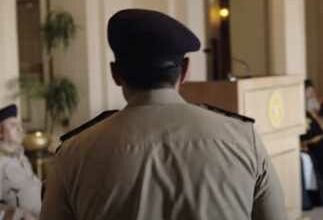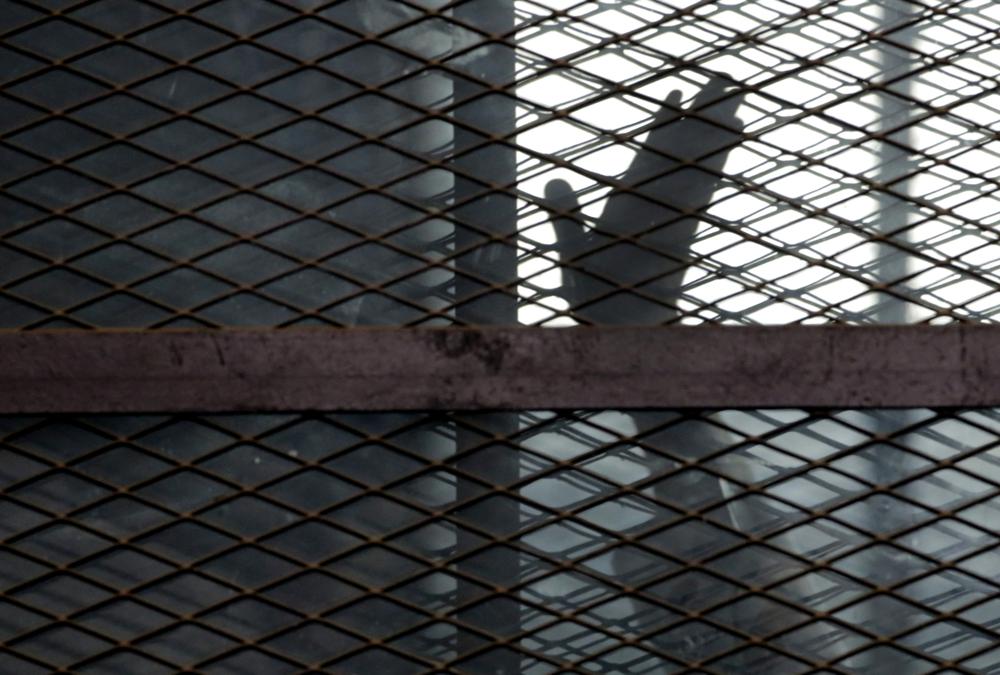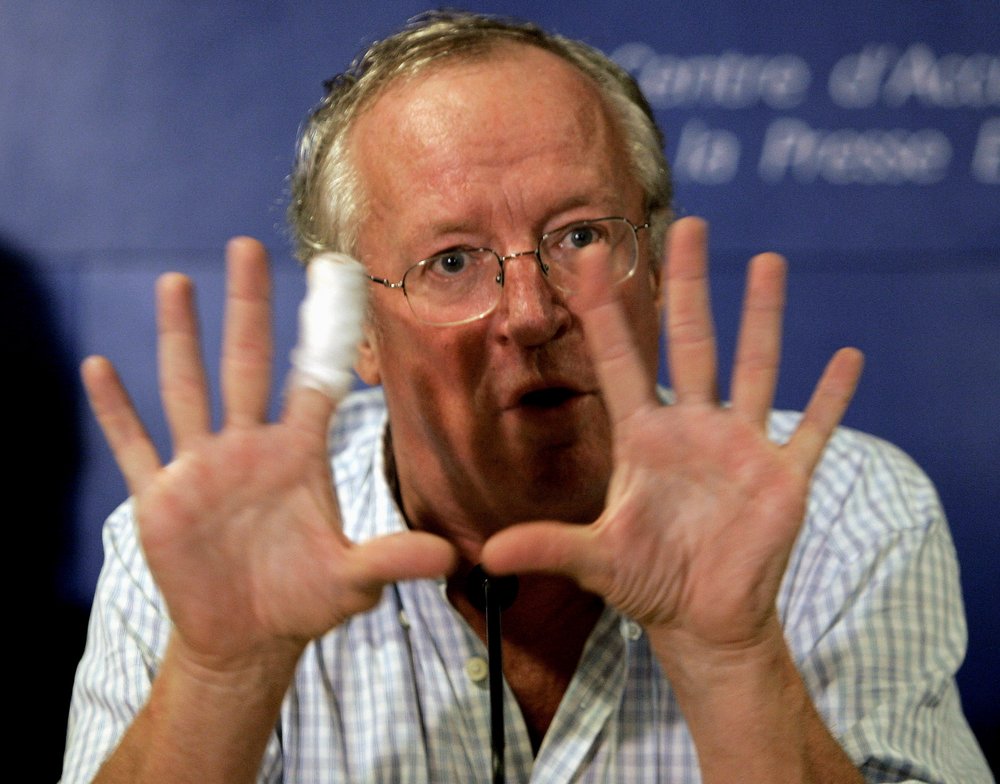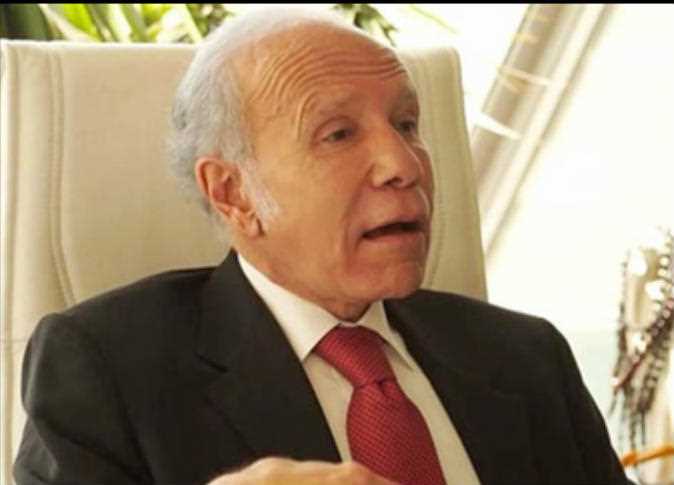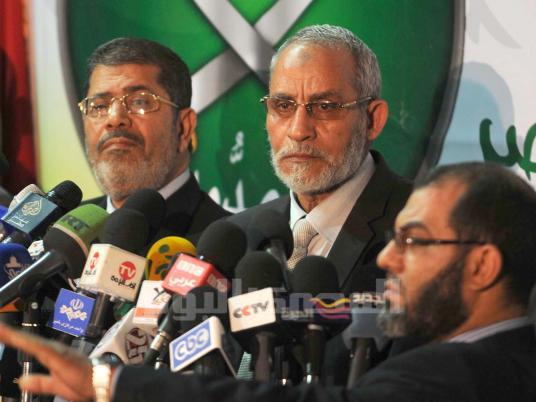
The mostly widely covered issues in Egypt’s newspapers today are the controversies and questions surrounding presidential hopefuls — particularly regarding their qualifications for nomination vis-a-vis the issue of dual nationalities.
Also making headlines are the crises associated with the constituent assembly and the cabinet. Members have quit the constituent assembly en masse in protest against its domination by Islamist MPs; a resolution to this crisis is still being sought. An ongoing conflict is brewing between the Islamist-dominated Parliament and the cabinet appointed by the ruling military junta. Parliamentary demands for the resignation of Prime Minister Kamal al-Ganzouri and his government have been met with resistance and defiance.
“Surprises in the presidential race,” reads the chief headline in Al-Akhbar. The state-owned paper runs subheads reading: “News of Omar Suleiman’s nomination within hours …” and “[Ahmed] Shafiq: I will continue in the race until the very end.” Al-Akhbar appears to prioritize information regarding these two hopefuls — the former being Mubarak’s only vice president, and the later being his last prime minister.
Independent Al-Tahrir newspaper quotes one of Suleiman’s campaign organizers and runs the headline, “Former vice president will announce his nomination on Friday.”
Other surprises and questions raised in Al-Akhbar pertain to the Muslim Brotherhood’s newly announced presidential candidate, Khairat al-Shater. Although the Brotherhood had pledged that it would not nominate a presidential candidate, it reneged on this promise and announced Shater’s nomination Saturday after its Guidance Bureau voted for him with a slim majority of 56–52.
Shater, a multimillionaire business tycoon and deputy of the Brotherhood’s supreme guide, was jailed for 12 years during Mubarak’s reign. The ruling military junta recently granted Shater executive amnesty for the criminal charges leveled against him in the past, thus giving him the green light to nominate himself to public office.
Al-Akhbar asks — given that this amnesty was granted around the same time as the opening of nominations — “Will Shater be eliminated from the presidential race?” No, according to the Brotherhood’s party newspaper. Freedom and Justice reports that Shater’s amnesty was granted before the Presidential Elections Commission began accepting nominations.
Freedom and Justice dedicates eight of its 16 pages to propagandizing Shater’s nomination. A top headline in the paper reads, “300 MPs in the upper and lower houses of Parliament prepare notarizations supporting Shater’s candidacy.” Al-Tahrir newspaper reports, “Freedom and Justice Party shows off its strength with 270 notarizations for the Brotherhood’s candidate.”
The liberal opposition paper Al-Wafd runs a headline quoting presidential hopeful Amr Moussa: “Brotherhood entitled to nominate Shater to the presidency … yet [if he wins], will the supreme guide still be the president’s superior?” Al-Tahrir runs a similar headline attributed to Moussa, asking, “Will the [Brotherhood’s] supreme guide be the president’s president?”
Al-Shorouk runs a chief headline reading, “Shater stirred up a storm of controversy, and then disappeared.” A subhead in this independent paper reads, “Angry reactions to the nomination of the deputy supreme guide for president.” Al-Shorouk also runs an article quoting former Brotherhood Supreme Guide Mahdi Akef, saying he opposed the nomination of Shater and still does. The former guide argued that the Brotherhood isn’t presently ready to shoulder such responsibilities. Akef concluded, “Yet since the majority of the Shura Council voted for him, I will abide by this decision.”
There is no mention of Akef’s dissenting opinion — whatsoever — within the pages of Freedom and Justice. In Al-Wafd, another headline announces, “Unrest among Islamist candidates following Shater’s entry.” This liberal paper also claims that the Egyptian Stock Exchange suffered losses amounting to LE1 billion since news surfaced of Shater’s entry into the presidential race.
Al-Wafd adds that “Shater’s nomination dealt a blow to the tourism industry” in an article that is uneasy about this presidential nominee, fearing tourists will shun an Islamic fundamentalist Egypt. Al-Tahrir runs a similar headline: “Shater nomination frightens the tourism sector.” This article mentions that Brotherhood statements regarding the banning of alcoholic beverages and women’s swimsuits have alarmed both tourists and Egypt’s Chamber of Commerce for Tourism Industries.
Regarding the qualifications and nominations of other presidential hopefuls, Al-Shorouk writes, “Curse of dual nationalities haunts presidential candidates.” The article mentions that presidential hopeful Hazem Salah Abu Ismail, an ultraconservative Salafi Islamist, is one of several candidates who may be disqualified from the presidential race because of his mother’s nationality. Abu Ismail’s mother had apparently applied for US citizenship and reportedly holds a green card, if she is not a full-fledged American citizen.
Presidential guidelines prevent candidates from nominating themselves if they, their parents or spouses hold dual-nationality. Al-Akhbar headlines: “Abu Ismail: As far as I know my mother isn’t American … and expectations for his disqualification.” In Al-Tahrir: “Abu Ismail: I did not know of my mother’s American citizenship;” this paper also mentions the likelihood that the Salafi nominee will be booted out of the race.
Al-Akhbar mentions that Islamist candidate Mohamed Selim al-Awa is “accused of being a Syrian national … Candidate confirms: My father is Egyptian, my grandfather is Syrian.” Al-Akhbar runs another headline attributed to the chief of the Presidential Elections Commission, Judge Farouk Sultan, reading, “Five candidates have proven that they meet nationality criteria, four others, including Abu Ismail, are questionable.” The other candidates being screened are moderate Islamist and former Brotherhood leader Abdel Moneim Abouel Fotouh, Judge Hesham al-Bastawisi and Mahmoud Hossam Eddin Gamal of the Bedaya Party.
In other news, Al-Shorouk reports: “Ongoing hemorrhaging of members from constituent assembly … Members who pulled out are resolute in their stances.” With the exception of the Brotherhood and Salafis, nearly all the members have pulled out of this assembly entrusted with drafting a new national constitution, citing the domination of Islamists over the assembly.
“Back to square one in constituent assembly … Ongoing negotiations for return of its members,” reads Al-Akhbar. This paper adds that the problem is not just between majority and opposition parties — “the problem lies in the fact that whole institutions have pulled out, including all representatives of the Coptic Orthodox Church, Al-Azhar and the Supreme Constitutional Court.”
The Freedom and Justice newspaper sheds very little light on these disagreements and paints the problem as opposition political forces “that seek a dictatorship of the minority over the will of the majority.”
Meanwhile, nearly all Egyptian newspapers — independent, state-owned and opposition — criticize the Brotherhood’s attempts to control both houses of Parliament, the cabinet, the constituent assembly and (most recently) the presidency.
The Brotherhood has sought to oust the interim cabinet through a no-confidence vote and appoint its own ministers. However, Planning and International Cooperation Minister Fayza Abouelnaga argued that “only Field Marshal Hussein Tantawi has the authority to dissolve the cabinet,” referring to Egypt’s military ruler, according to Al-Tahrir. Also quoting this minister, the top headline in Al-Akhbar reads, “Abouelnaga: Government will not resign … Decision rests in hands of the field marshal.”
Egypt’s papers:
Al-Ahram: Daily, state-run, largest distribution in Egypt
Al-Akhbar: Daily, state-run, second to Al-Ahram in institutional size
Al-Gomhurriya: Daily, state-run
Rose al-Youssef: Daily, state-run
Al-Dostour: Daily, privately owned
Al-Shorouk: Daily, privately owned
Al-Wafd: Daily, published by the liberal Wafd Party
Youm7: Daily, privately owned
Al-Tahrir: Daily, privately owned
Freedom and Justice: Daily, published by the Muslim Brotherhood's Freedom and Justice Party
Sawt al-Umma: Weekly, privately owned
Al-Arabi: Weekly, published by the Nasserist Party
Al-Nour: Official paper of the Salafi Nour Party

